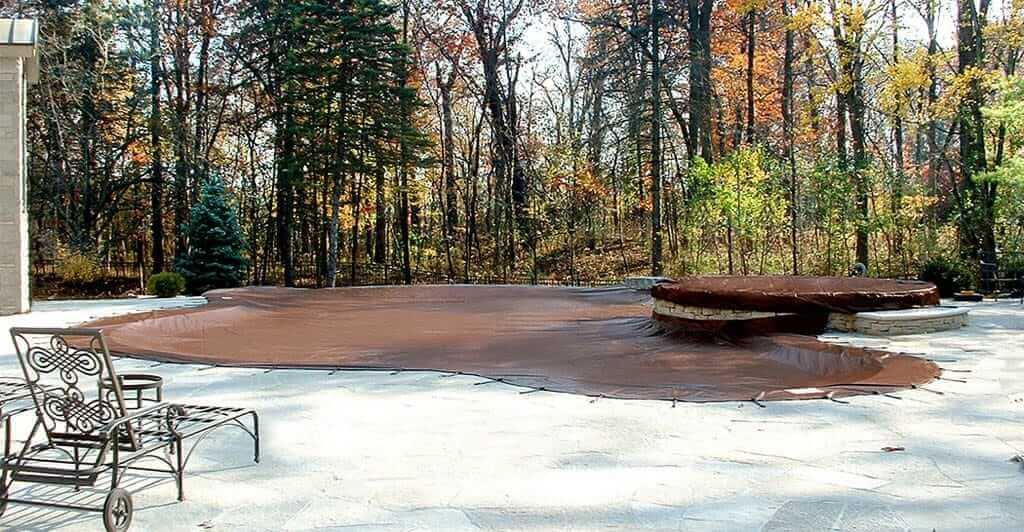A winter pool cover is one of the best ways to keep your pool in great shape during the winter season. If you own a private pool, it’s unlikely that you have the time to regularly check on it and take care of it throughout the off-season. The best way to ensure your pool stays in good condition when you aren’t using it is to buy or rent an above-ground pool cover. The good news is there are many different types of pool covers available, each with various strengths and weaknesses.
Why Pool Covers are Beneficial During the Winter
Water temperatures fall drastically in winter and a winter pool cover can be a lifesaver. Pool covers reduce evaporation and keep your pool warmer throughout colder months, so you don’t have to use as much energy heating the water. The result is less maintenance and lower gas and electricity bills! If you need to heat your pool during winter, keeping it covered will help ensure that your water doesn’t freeze over. Pool covers also provide safety benefits by keeping debris out of your swimming area; they prevent injuries from sharp objects like rocks or glass shards getting into the water. What’s more, pool covers help you maintain privacy without having to install expensive landscaping.
Here are some steps that you should follow if you plan to leave your pool uncovered for the whole winter.
Keeping the Pool Clean
Water chemistry is important for a clean, clear pool. A change in pH can affect how cloudy your water appears and how well it works as a disinfectant. Total alkalinity levels also play an important role in maintaining clear water. Test regularly over winter and adjust as needed with small doses of chemicals such as muriatic acid or chlorine bleach.
Keep an Eye on Pool Water Temperature
One of the main reasons pool owners usually cover their pools is to keep out leaves and debris that can cause problems, such as clogging pipes. However, some people also cover pools during winter for another reason, temperature. The average temperature of a covered pool will be warmer than an uncovered one. This isn’t necessarily a good thing though. Water can get too warm and if it does it’s more susceptible to algae and bacterial growth; sometimes chlorinated water isn’t enough on its own to prevent these types of growth forming on your pool floor and walls. Therefore, if you decide not to cover your pool during the winter months, it’s always a good idea to keep an eye on pool water temperatures, just in case they get too high.
Test and Balance the Water
Remember to test your water after removing your cover to make sure everything is balanced correctly. Otherwise, you may end up using chlorine or bromine for much longer than necessary.
Keep Your Chlorine Level Up in the Pool
If you don’t have a pool cover to protect your pool from debris, be sure to check your chlorine level regularly. Maintaining it throughout fall and winter is much easier than bringing levels back up once spring rolls around. If you plan well, it will also be ready to use next summer. Just be sure not to let it get too low, as other issues can arise due to low chlorine levels. The same goes for pH levels, so check the alkalinity regularly too.
